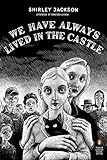At the end of Denis Johnson’s Train Dreams, which I teach and re-read almost every year, a wolf-boy, (half boy half wolf or maybe only dressed up to appear this way) stands on stage, in front of a rapt and silent crowd–though minutes before, this same crowd was tittering, choosing whether or not to listen or to laugh–and screams. Screams, is maybe not quite right. It is a sort of wail, a primal scream. This is the last paragraph, one of my favorite ever paragraphs, in its entirety:
But they hushed, all at once and quite abruptly, when he stood still at center stage, his arms straight out from his shoulders, and went rigid, and began to tremble with a massive inner dynamism. Nobody present had ever seen anyone stand so still and yet so strangely mobile. He laid his head back until his scalp contacted his spine, that far back, and opened his throat, and a sound rose in the auditorium like a wind coming from all four directions, low and terrifying, rumbling up from the ground beneath the floor, and it gathered into a roar that sucked at the hearing itself, and coalesced into a voice that penetrated into the sinuses and finally into the very minds of those hearing it, taking itself higher and higher, more and more awful and beautiful, the originating ideal of all such sounds ever made, of the foghorn and the ship’s horn, the locomotive’s lonesome whistle, of opera singing and the music of flutes and the continuous moanmusic of bagpipes. And suddenly it all went black. And that time was gone forever.
Train Dreams is a book about a man, Robert
Grainier. We meet him in his thirties, but through the course of the book,
which is only 117 pages, we get most of his whole life. He loses his young
daughter and his wife in a fire. He lives, for years, in the charred remains of
the place that used to be their home. It is, to my mind, a nearly perfect book.
I love short books. I love books that are as careful with everything they leave
out as they are with what they put in.
This
last scene too, is, to me, a little bit of what it is to be a writer; it’s the
only type of book I want to read right now. By this, I mean the scene portrays
a particular and penetrating type of performance. I think all books are
performance, which is to say they are not life but an attempt to contain and
offer something about life to other people, which is very different than just
living day to day. This is the wolf boy on stage. In addition to performance,
the books that I love most are guttural, visceral, and urgent: a scream. The
types of performance that make almost everyone who hears them stay still and
silent, sit up straight.

I started a lot of books I didn’t finish this year. I had no attention span; I’ve been with my children almost all the time. I read some books that felt empty, like box checking, the opposite of the wolf boy. But I also read Marie NDiaye’s My Heart Hemmed In, like nothing I have ever read before and a performance of a dissonance, a way of being in the world and feeling of near constant discomfort and vertiginous-ness that felt not only true but also like I’d never seen it portrayed as brilliantly as I did in the NDiaye. I read Olga Tokarczuk’s Drive Your Plow Over the Bones of The Dead and found it equally thrilling and specific. Though I should admit there is no surer way to thrill me than to give me a brilliant angry older woman who might have also lost her mind.


I taught both these books in a class about “Unhinged Narrators”. This is a made-up term. Most of the narrators, to my mind, are only there to show us how unhinged any of the people who don’t feel regularly, or at least intermittently, unhinged are. We read Erasure by Percival Everett, a master class in grounding the reader firmly and confidently inside a well-built narrative, sufficient that, within it, the writer might go anywhere he wants; we read the brilliantly funny, fragmentary Why Did I Ever by Mary Robison. We read Thomas Bernhard, whom I adore, and who students inevitably feel strongly about. When they come into class and claim to hate him, I ask them to consider how that too is an accomplishment. There’s nothing scarier, I tell them, to me as a writer, than to imagine someone reading something that I wrote and feeling meh.
This
is connected to the primal scream and how it’s how I’ve come to think of novels
lately. I want the ones that hurt a little, get inside of me and make me pay
attention. Like life, but distilled down to its clearest and most visceral
component parts.


We also read Horacio Castellanos Moya’s The She-Devil in The Mirror and Shirley Jackson’s We Have Always Lived in the Castle, a book I love not least because I love how she shows how stories can take feelings and imbue them fully into objects: that last image of those girls locked up inside that house, the way it makes me feel both pleasure and horror at the same time, feels like an accomplishment very few books can pull off with abstraction all by itself.



Other books I read this year that felt like this haven’t come out yet: Brood, By Jackie Polzin, Julia Fine’s The Upstairs House, Acts of Desperation by Megan Nolan. I read each of these quickly and hungrily, foregoing sleep. I’d never read anything quite like them, even as they explored terrain I’ve spent my whole career reading and thinking and writing about.
So
much of this year has been awful. What we’ve lost, how separate we’ve all felt.
I’ve cycled through every awful feeling. I’ve been so scared and sad. But as
opposed to other times that I have felt sad and angry, desperate like this,
other times when I started to be horrified that I’d chosen to make a life trying
to do something as futile and absurd as to write books, this time I’ve found a
different and more solid sense of solace inside of reading and of writing.
Maybe because of how much I miss human interaction, maybe because I’ve lost my
faith in so much else: I believe in books, at least the ones that feel like
primal screams, in ways I never have before. I don’t think that they can save
the world, but, I think, the fact that their power is on the scale of the
individual and specific and guttural feels like one of the few spaces that
still seems capable of offering some hope.
More from A Year in Reading 2020
Do you love Year in Reading and the amazing books and arts content that The Millions produces year round? We are asking readers for support to ensure that The Millions can stay vibrant for years to come. Please click here to learn about several simple ways you can support The Millions now.
Don’t miss: A Year in Reading 2019, 2018, 2017, 2016, 2015, 2014, 2013, 2012, 2011, 2010, 2009, 2008, 2007, 2006, 2005
The post A Year in Reading: Lynn Steger Strong appeared first on The Millions.















